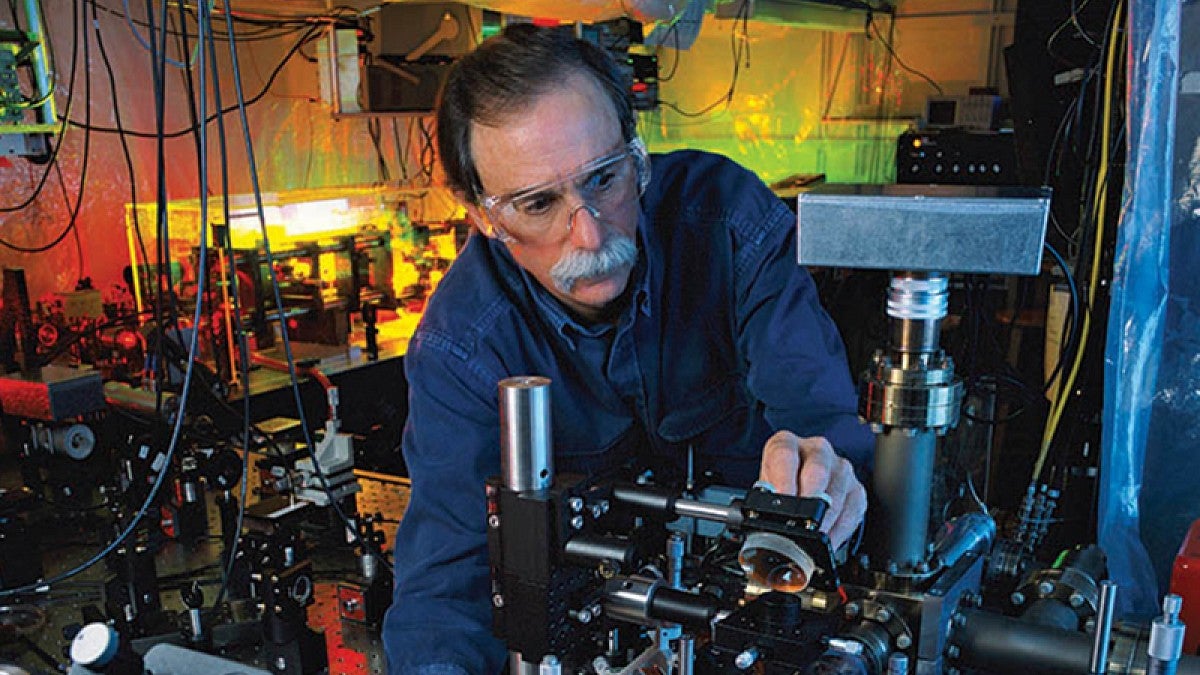A newly formed Chinese science foundation has honored University of Oregon physicist David Wineland, winner of a 2012 Nobel Prize who joined the UO in 2017, in its inaugural list of recipients who will receive a Micius Quantum Prize.
The prize, awarded by the Micius Quantum Foundation, recognizes major advances in quantum science, ranging from early conceptual contributions to the recent experimental breakthroughs. Each recipient receives one million Chinese yuan, or about $150,000, from the foundation, which was established through donations from private entrepreneurs.
In announcing the awards April 26, the foundation named 12 winners for 2018 and 2019, focusing on themes of quantum computation and quantum communications, respectively.
Wineland, a Philip H. Knight Distinguished Research Chair, was chosen as a 2018 winner for “his groundbreaking experiments that opened the way to quantum computing and quantum metrology with trapped ions.”
“I'm very honored to receive the award, but it's a bit humbling because there are many other people as deserving,” said Wineland, who is based in Oregon Center for Optical, Molecular and Quantum Science. “I look forward to my Oregon colleagues receiving similar recognition.”

The foundation is named after Micius, an ancient Chinese philosopher who promoted peace and pursued science. He created the pinhole experiment that proved light traveled straight. Micius, whose name was Latinized from its original Mozi, lived in the fifth century BC. He also believed that objects can be infinitely divided into smaller and smaller pieces down to the smallest fundamental unit of particle – a concept that resonates with modern quantum physics.


